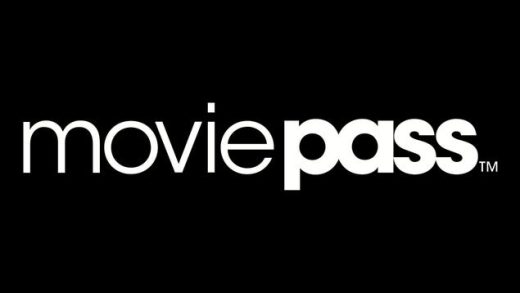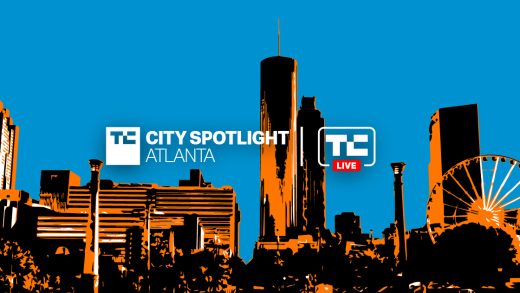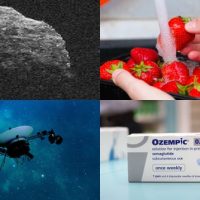Agustina Bazterrica is an Argentinian writer based in Argentina. Her new novel, Tender Is the Flesh, translated by Sarah Moses, follows Marcos, who works in a slaughterhouse to pay for his father’s medical bills. Only it’s not a normal slaughterhouse. In this dystopian future, meat from other animals is no longer edible because of a virus that, like the novel coronavirus, is of zoonotic origin. Rather than stop eating meat, humans have turned to cannibalism. When given a female to “rear” in his back garden, Marcos is forced to face up to the reality of this new, terrifying world—and his own complacency within it. I spoke with Bazterrica about her novel, and whether we still have time to change our ways.
Elizabeth Sulis Kim: What compelled you to write a book about cannibalism?
Agustina Bazterrica: The novel is dedicated to my brother, who is a chef here in Argentina. He has an organic restaurant. He studied how food can make you ill or can cure you. I started making small changes to my diet, and all the books and articles I read told me that eating meat is not healthy. I actually stopped eating meat after watching the documentary Earthlings. It shows you how we treat animals that are abandoned, like dogs and cats, and how other animals are killed for food. It’s terrible. I couldn’t stop crying.
Years later, I was walking through a butcher’s shop in Buenos Aires when I had a revelation. I saw corpses. I thought, here in Argentina we eat cows and pigs and chickens but in India, they don’t eat the cow because it’s sacred. So I thought: ‘the meat that we eat is cultural—we could eat each other.’
ESK: I grew up vegetarian and for me the novel felt very realistic. So the idea came from your personal experience—what other research did you do?
AB: There was a novel called De ganados y de hombres by a Brazilian author, Ana Paula Maia. It takes place in a slaughterhouse, so that was really useful for me to understand the process of how we slaughter animals. Afterwards, I read Cuaderno de campo, by Carlos Ríos. And The Vegetarian by Han Kang. I also read a doctoral thesis called Pensar Caníbal (literally: Think Cannibal) by a Colombian author, Adolfo Chaparro Amaya. It helped me think about the theme of cannibalism. And Comí (I ate) by Argentine writer Martín Caparrós. He had an illness which made him unable to eat and he started reflecting on it—it was really interesting. A book that was really a revelation was Extraños Animales (Strange Animals). The author, Mónica Cragnolini, is an Argentine philosopher. She gives classes at my university where I study and she talks about animal rights. This book was really important for me because I thought a lot about how we humanize animals and how we animalize humans. Mónica read my novel. She wrote to me and told me that I captured the essence of her book in my novel—that was great.
I didn’t read or re-read dystopian fiction because at the time of writing I didn’t think I was writing a dystopian novel. Of course, I knew that perhaps for a cannibal, it would be a utopia, but when I write I am not thinking: “Okay, I am going to write a dystopia.” It’s more of a visceral thing. I also watched a lot of documentaries and films and read a lot of manuals that explain how a slaughterhouse works.
ESK: You show how violence towards animals is often entangled with other types of prejudice and violence in a capitalist system. Why do you think people ignore the issue of speciesism?
AB: Hannah Arendt says in her book Eichmann in Jerusalem: A Report on the Banality of Evil that the extermination of Jews in Germany and other European countries was not down to the pure evil of Nazi rulers, but to society’s indifference. This massacre, executed by bureaucrats, would not have been possible without the indifference of “good” citizens. Thus, we devour each other in a symbolic way because we are generally blind to our kinship with others. When faced with their suffering, we look the other way. And we do the same with other sentient beings. And I think that is because we are part of this matrix that we call capitalism that is teaching us to be violent. And we are violent with all the things on this planet. We don’t have another planet, we only have planet Earth. This is why the documentary Earthlings was so important for me—it’s a reminder that we are all earthlings. But we humans think we are superior [to] other beings, and we kill them, destroy, contaminate everything. And we do that with other humans.
We devour each other in a symbolic way because we are generally blind to our kinship with others.
When I stopped eating meat, I couldn’t believe that I never thought that a piece of meat actually came from a part of a cow that was living a few weeks ago. Here in Argentina, barbecues are sacred. So that for me was terrible to realize. But the system teaches not to think where that piece of meat came from. We use the same logic with other people. Because they are not our brothers in life. So we can discriminate, we can kill because they are “others,” a threat.
ESK: Returning to the topic of barbecue culture, I find it interesting how in your book you have the hunters and the people who are eating barbecued meat, who are quite open to what they’re eating. It’s as if they somehow feel in control with the gun or a fork. Do you think there is a certain vulnerability and desire for manliness around people who hunt for sport or people who are vocal about consuming barbecued meat?
AB: Yes, maybe they are vulnerable, but aren’t we all? If you need to deal with your vulnerability killing innocent beings, well, I think it is really sad. In Argentina, it’s really serious how people react when you don’t eat meat. They don’t respect your decision. To begin with, they joke about it, and if you read the subtext, you understand that behind that joke they’re questioning your decision in a violent way. At some point my cousin, who I love, started sending me photographs of parts of animals being barbecued. I don’t get offended by it, but it’s aggressive. With meat, I think that people react like this because in some part of their brain they know that they’re eating another being and they hate you because in a way you are showing them that.
ESK: With Argentina being a very carnivorous country, how are people responding to your novel?
AB: Well, they love it because it’s in the fifth edition. My editor told me: “Your novel is a book that burns—you read it and you need to talk about the book with other people. You need to share it.” So, that is what is happening here. People read the book and a lot of them told me that they are recommending the book to everyone because they have this impact, they question things so they need to talk about the book with others.
ESK: Have readers told you that your book encouraged them to become vegetarian or vegan?
If I cared about the readers, I would never have written that ending. I don’t want to hurt people.
AB: Yes, definitely. On social media I receive a lot of messages from readers and I get tagged in posts. People have asked me if while writing I knew that it would have this impact. And I don’t really know because when I am writing I am not thinking about the future. I don’t care about the readers, either. Because if I do care about the readers, I would never have written that ending. I don’t want to hurt people. I think about what is best for the story I want to tell and what impacts me. The process of writing for me is really visceral.
A funny thing happened with one reader. A lady reported me to the Argentine Society of Writers because she was really furious with the ending, which she thought was an example of gender violence. Nothing happened, because what can the Argentine Society of Writers do?
ESK: So it worked in a way, it had a huge impact on her?
AB: Yeah—she was furious! And that was great for me. Reading the book made her pick up her keys, put them in her bag, take the bus and go to this place.
But I am really grateful for everything that is happening with this book. I thought that perhaps this book would be so terrible that no one would want to read it. You don’t know what is going to happen with a book like this.
The best thing for me is that it is being read in schools. I am really happy about that. I’ve visited many schools where I’ve discussed it. Some have been in the middle of nowhere, eight hours from where I live. I think it’s really important for teenagers to start questioning the Matrix. And the great thing is that teachers are really happy to work with the book because teens finish reading it (this is something that teachers struggle with) and they like it, perhaps because it is a little bit gory.
ESK: What role do you think fiction has in freeing us from state-normalized oppression?
AB: I love literature that makes an impact and generates a response, but does not tell me what to do. In my own writing I want to generate questions. And a lot of people told me that after reading my book they stopped eating meat. I don’t know how much that decision endured. I don’t care if they stop eating meat for one day, one week or several years, it’s not the important thing. The important thing is that they start looking at reality in a different way.
Language is one of the great political accomplices of capitalism. Language is never innocent.
That is why in the great dystopian novels like 1984 or Fahrenheit 451, or The Handmaid’s Tale, the [oppressors] destroy and prohibit books, and they change the language. Here in Argentina, we had a dictatorship and Spain with Franco as well. They censored books, they burned them because when you have people that accept reality as it is, you can control those people, you can oppress them. If you have people that start questioning things, that start looking at the world in a different way, you cannot control them so easily. Art, the good type, makes us think.
ESK: A lot of the cruelty and exploitation in your book happens because the perpetrators of it are in denial or detached. Through fiction, language and storytelling, how can we encourage people to connect with the thing that they are avoiding?
AB: I think that language is one of the great political accomplices of this system that we call capitalism. Language is never innocent. In Spanish we have 101 synonyms to talk about or to say the word “whore” but there is not one word that is talking about the same thing for men—not even one. We don’t have the word “man-whore” for example—it doesn’t exist. And that reveals a lot about the oppressive system that is patriarchy where men that have sex with a lot of women are successful, but women who have sex with a lot of men are deemed “sluts” or “whores,” and they’re judged.
Language gives us an identity; it speaks of who we are. That is why in Tender Is the Flesh I tried to work carefully with language. Creating a new matrix requires new words, new ways of naming new things, like when they call a human that is bred for consumption a “product.” But I also worked with silence, with the unwritten word, which is another form of cannibalism because by not saying certain things we become complicit; we help build and perpetuate that reality. When we don’t talk about femicide, for example, we give room to impunity, to thinking that women’s lives are worthless. By naming acts of violence and understanding them, we give them body and can work towards preventing them. By naming, we cannot continue to avoid things.
By naming acts of violence and understanding them, we can work towards preventing them.
ESK: So it’s in finding words for silences.
AB: Yes. Exactly.
ESK: I think it’s interesting that the focus for most readers has been on the gruesomeness of this book. For me, there was that and it mirrored how I saw the world growing up. But what troubled me the most, after reading, was that I was left with sadness, an existential feeling that nothing in the world is important anymore and nothing we deem worth saving. Can we really save the world if we don’t think that anything is sacred?
AB: Wow. Yes, I definitely think that that is one important aspect of the book. The book has this whole existential void. The abandoned zoo is the place where Marcos was really happy with his father, and there was a little bit of connection with nature. And maybe, yes, my book doesn’t have a light. Maybe the reaction when you stop reading it is “oh my god, we live in this cruel system, we are part of it.” But perhaps from reading it, the reader can think: this is where we might be headed and change direction. We still have time to steer towards a kinder place.
The post If You’d Eat a Cow, Would You Eat a Person? appeared first on Electric Literature.














